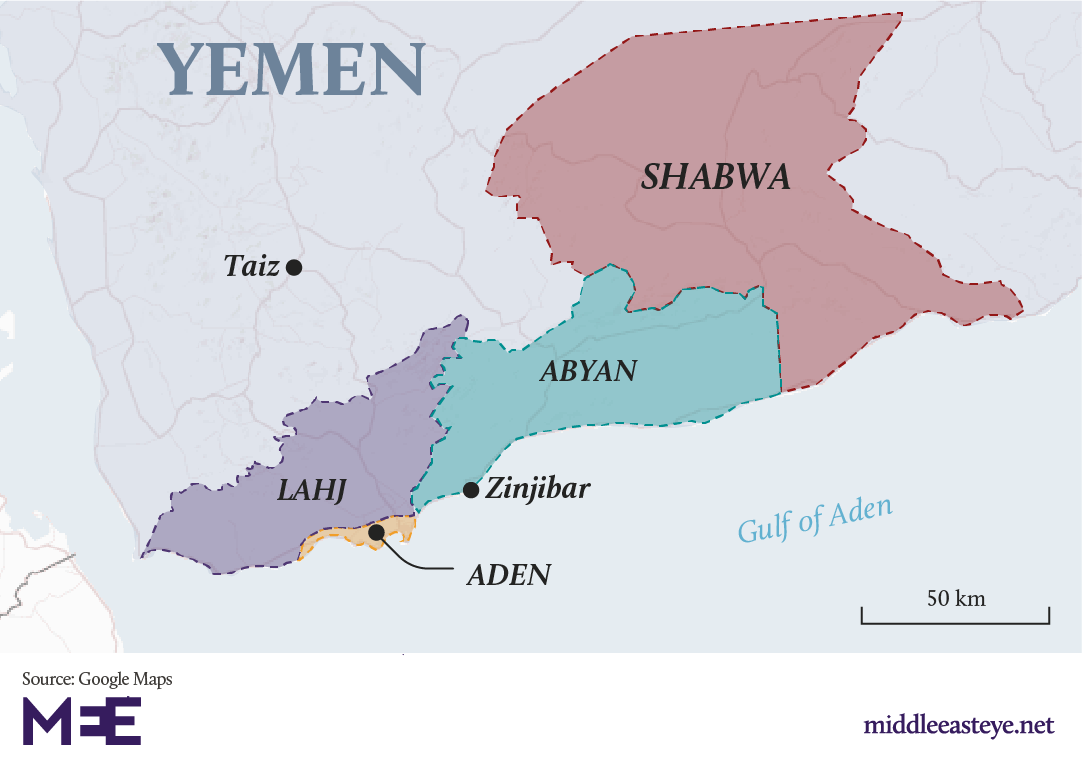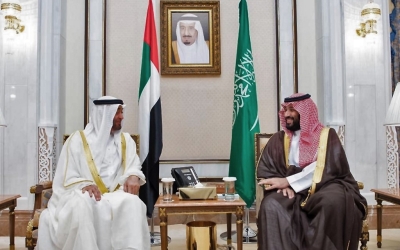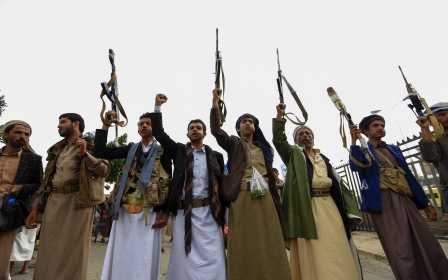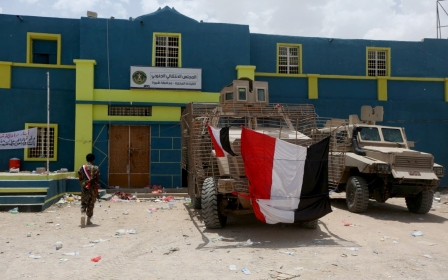Yemeni government claims control of Aden as secessionist forces collapse
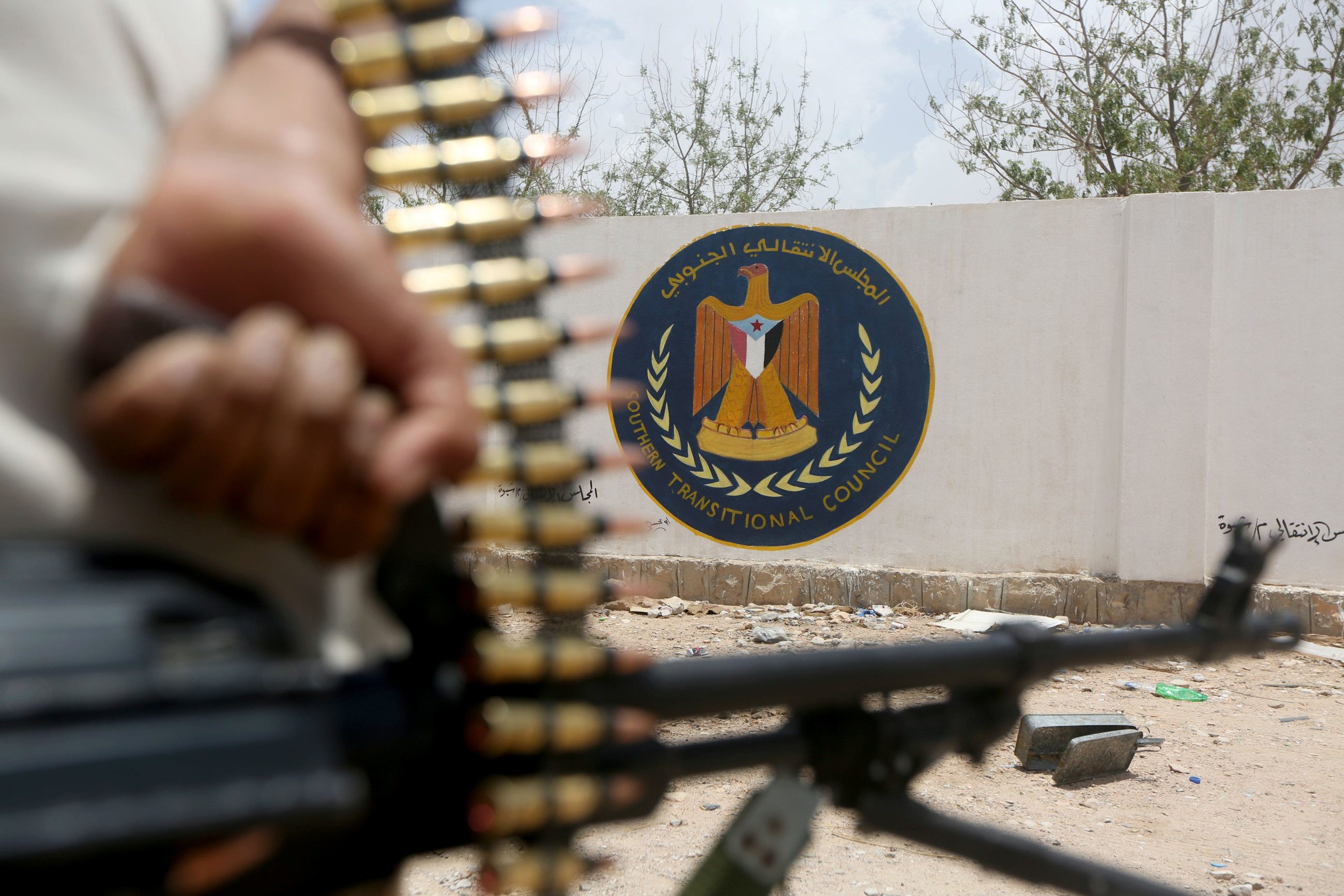
The Yemeni government has claimed control of Aden following its forces' dramatic counterattack in southern Yemen that has swept southern secessionists from recently seized areas.
Late on Tuesday, forces loyal to President Abd Rabbuh Mansour Hadi began moving from eastern Shabwa province towards neighbouring Abyan, which they recaptured early Wednesday before moving southwest to Aden.
Now Hadi’s troops have control of much of the strategic port city, just 18 days after being routed by the Security Belt Forces (SBF), a militia seeking the independence of Yemen’s south.
In a statement, the Yemeni government said it had recaptured Aden and seized control of the presidential palace.
Dozens of dead and wounded have been brought to Aden's Republic Hospital, which is appealing for doctors to come and help with the number of casualties, local media reported.
New MEE newsletter: Jerusalem Dispatch
Sign up to get the latest insights and analysis on Israel-Palestine, alongside Turkey Unpacked and other MEE newsletters
Over the past fortnight, the SBF, the military arm of the UAE-backed Southern Transitional Council, swept through Abyan province facing light resistance from Hadi’s forces.
That changed when it reached Shabwa, where Hadi’s troops managed to turn the tables with Saudi backing, and the SBF has now melted away from recently won areas such as Abyan’s provincial capital Zinjibar.
Hadi’s information minister, Moammar al-Eryani, hailed the developments on Wednesday.
“The heroes of the national army and the security forces recaptured Zinjibar city and they are advancing in all districts of the province,” he tweeted.
A pro-Hadi fighter, who wished to remain anonymous, told Middle East Eye his forces were gaining territory with ease.
'Our forces are now advancing in Aden city with no tough resistance from the SBF'
- Pro-Hadi fighter
“Most of the SBF fighters surrendered,” he said. “They did not fight in Abyan and our forces are now advancing in Aden city with no tough resistance from the SBF.”
The fighter confirmed that the pro-Hadi forces aim to liberate Aden from the SBF, and said they will not turn back until they return the city to government control.
Already the airport has been recaptured, he said, and Hadi’s forces are now on their way to the presidential palace.
“The pro-Hadi forces sent messages to the SBF to withdraw from public institutions in Aden peacefully, otherwise we will recapture them by force,” he said.
Surrendering fighters
During the SBF’s initial advances, some pro-government fighters surrendered to the southern secessionists. Now the opposite is happening, as southerners capitulate as their units are overrun.
“We surrendered to the SBF because we did not have enough weapons to fight them then and fighting would only end in our defeat,” the pro-Hadi fighter said.
“But today pro-Hadi forces have enough fighters and weapons, so SBF cannot resist.”
“During the coming hours, there will be good news about the liberation of the whole city of Aden,” he added.
Sources in Aden confirmed that Hadi’s soldiers had taken Aden airport and many other districts.
Before the Yemeni government's statement claiming control of the presidential palace, sources told MEE a mediation process was ongoing, trying to convince SBF fighters to abandon the building and withdraw peacefully.
It was not immediately clear if pro-Hadi fighters had indeed captured the palace.
“Clashes are ongoing in some areas in Aden and pro-Hadi forces are spreading in the city, while SBF fighters are withdrawing from streets,” Aden resident Mahmoud told MEE, using just his first name over security concerns.
“The situation in Aden is not stable at all and residents are expecting battles to break out in all the city’s neighbourhoods at any time.”
Mahmoud said some Aden residents had joined Hadi’s forces, fighting alongside them using their personal weapons.
“Some people in the al-Mimdarah area have started to attack the SBF, and others are preparing themselves to do so,” he said.
“The coming hours will not be safe in Aden.”
STC vows to return
On Tuesday evening, Brigadier Aidarous al-Zubaidi, the head of the STC, acknowledged his forces’ defeat in Shabwah province, adding that they will not hold others responsible or accuse internal or external actors.
He also vowed to take control of Shabwa, Hadhramaut Valley, Mahra and Socotra.
'Our mistake was that we gave the militias clemency when we took over Aden and Abyan, and today they returned to fight us again'
- SBF fighter
That promise looks far from being realised, though an SBF fighter insisted to MEE that the southerners will not abandon Aden.
“Pro-Hadi forces have arrived at Aden’s entrance and we are definitely gathering now to confront them. We will not allow them to take over Aden again,” he said.
“Our mistake was that we gave the militias clemency when we took over Aden and Abyan, and today they returned to fight us again.”
The SBF member accused the pro-Hadi fighters of being “militias” who create chaos in the south, and threatened that Aden is a red line.
“We lost Shabwa and Abyan because of some mistakes, but we are not willing to lose Aden.”
On Wednesday, US Secretary of State Mike Pompeo met with Saudi Deputy Defence Minister Khalid bin Salman, where the secretary reiterated US support for a negotiated resolution between the Republic of Yemen government and the STC.
"The Secretary and the minister agreed that dialogue represents the only way to achieve a stable, unified, and prosperous Yemen," the State Department said in a statement.
Middle East Eye delivers independent and unrivalled coverage and analysis of the Middle East, North Africa and beyond. To learn more about republishing this content and the associated fees, please fill out this form. More about MEE can be found here.


